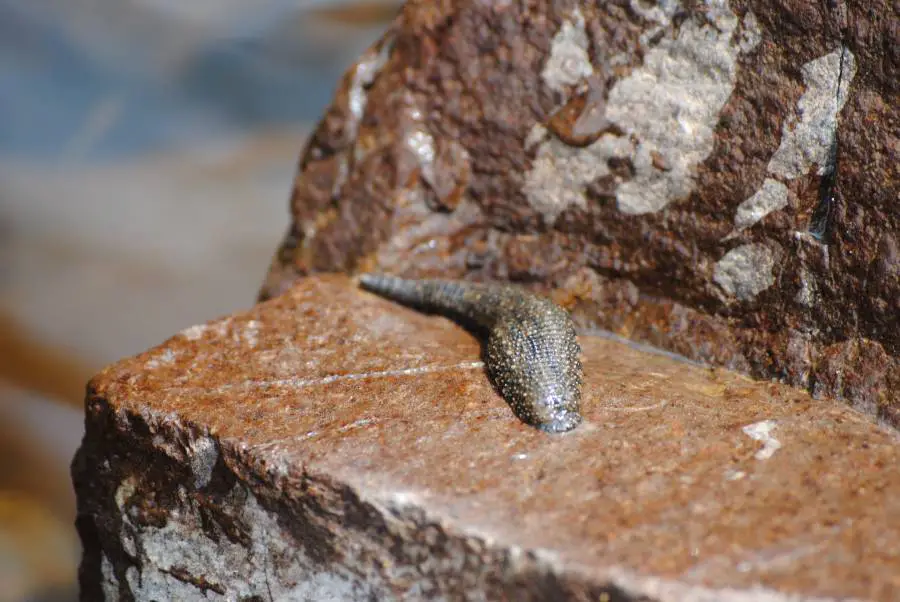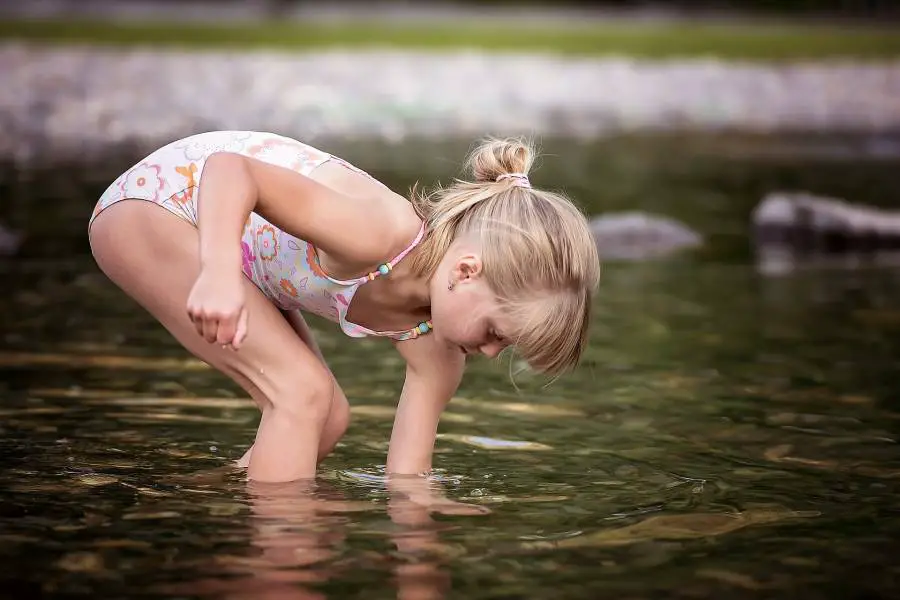Table of Contents
Venturing out to the lakeside sounds like an adventure, but it can come with attacks from leeches.
Leeches attach themselves to the skin and gorge on the host’s blood till they fill before detaching.
Leeches are a regular sight around and in lakes due to the humid nature of the environment.

They are usually plenty in spring because that is their reproduction period. Leeches also live under tree branches, weeds, and shallow lake areas.
You don’t have to cut short that trip to the lake. So what is it going to be? Here’s how to avoid leeches in lakes.
What Are Leeches?
Leeches are a type of worm of the Annelid Phylum species, it feeds on their host’s blood for survival and is used in the nineteenth century for medical purposes.
Leeches live in damp places like beaches, lakes, and even rainforests. Any freshwater area will have leeches around.
Leech bites are not harmful, but some species’ bites can be painful.
It detects movement around its habitat, swims to the host, attaches its sucker to the body part, and sucks blood until it’s full before dropping off.
Most times, the host might not be aware of a leech bit till it drops due to the anesthetics it secretes as it bites.
How To Avoid Leeches In Lakes
Fending off leeches is tricky because they creep on the body as quiet and with almost no irritation as a ninja.
Sometimes before one notices, they are already feeding, and pulling them off while it feeds is not a good idea due to possible blood infection.
They are no safe chemical control methods to keep leeches off the body.
The available chemical (BYGONE) kills the leeches once they come in contact and is ecologically harmful to nature because it will reduce the leech population and harm other aquatic animals.
Killing off the leeches will affect the birds that eat leeches. Also, leeches are sometimes necessary to restore blood circulation and remove poison.
It is best to avoid them using the following methods.
Wearing Leech Socks
Buy a pair of leech socks; leech socks are almost like regular socks but with a longer length.
The leech socks prevent the worms from wriggling between the toes or the feet. The socks tie up below the knee, providing complete leg protection.
Apply Tobacco
Apply tobacco water on clothes and shoes to deter leeches from creeping on them.
Soak the tobacco leaves in water and drain the water into a spray bottle for use or soak the leech socks in it too.
The tobacco smell can intoxicate the leeches or slow them down. However, this method has a slow effect.
Use Of Salt
Applying salt on a leech will cause the sucker to withdraw immediately.
If the leeches are already sucking blood, do not pull it out, pour salt and it will detach immediately, or allow it to finish.
Pulling off gorging leeches can cause a blood infection or bleeding. It is best to put the salt in a water bottle and spray accordingly.
Tuck In All Cloth Ends
To prevent leeches from crawling inside clothes, tuck in all exposed cloth endings like the shirt bottom into the pants, the pants into the socks, and the shirt hands into a glove.
These blood-sucking creatures are creeping masters and can get under clothes without notice. It’s best to wear short sleeves too.
Swim In Areas With Little Organic Debris
Leeches can be found anywhere there is organic debris — fish waste or algae — and they use that to help them find food sources like fish eggs or insects.
If you swim in areas those areas, leeches will attack you.
Avoid Leaning
Do not lean on trees or lie on grasses. When tired or need a rest, find a well-lit space with direct sunlight to rest at.
Leeches love wet, damp places and do not live in dry, sunny spots. The tree shades might turn out to be their abode.
Leeches also live on the ground, under grasses and shrubs. It’s best to avoid leaning or resting in all damp places.

Eucalyptus And Lemon Oil
Using an extract of eucalyptus and lemon can fend off leeches from crawling on the body. The extract has a menthol-choking aroma.
The aroma can be strong enough to deter the leech from making its way to the body.
However, this might take a little time to effect, and some stubborn suckers might still succeed in attaching themselves.
Use Timur Oil
Timur oil is an aromatic oil that also acts as a pesticide. Rubbing Timur oil will deter any leech trying to attach to the skin.
It might kill them off because of its qualities as a pesticide.
Though the effects of the Timur oil might not be fast to commence, it is proven as a good measure against leeches.
Spray Insecticides
Spraying insecticides such as DEET or DEPA will kill leeches that crawl on the sprayed surface.
You can spray it on the protective covering you are wearing or clothes, but never spray it directly on an attached leech.
The spray is only for protective purposes, not for the removal of the suckers. The use of insecticides is not ecologically sound.
It might harm other aquatic creatures and disrupt the balance of the lake’s feeding pattern.
While leeches are creepy and sometimes have a painful bite, they are not harmful or vector carriers. They only cause minor discomfort.
Sometimes, their bites leave swellings or scars. It is best to avoid them than to kill them off.
How To Detach A Feeding Leech
Using turpentine, vinegar, salt, or alcohol on the leech to detach the suckers from the skin is effective, but it is not safe as the leech might regurgitate it inside the wound.
This act can cause an infestation.
The best way to remove leeches is by doing nothing. Allow the leech to feed and fall off.
But if not removing it can not be helped, use a flat tool to gently scrape the sucker off the skin. Follow these steps below.
- Find the mouth. It is smaller than the other body parts. The mouth is the narrowest part of the body. That is what attaches to the skin.
- Using one hand, gently pull the skin while pulling the leech’s skin till it’s taut.
- Separate the leech’s mouth from under the skin by sliding a fingernail under the mouth.
- Throw the leech away as fast as possible before it attaches to another part of the body or your finger.
Treatment Of Leech Bites
The main issue with a leech bit is the bleeding. A firm dressing will stop the bleeding, but to be safe, ensure to disinfect the wound.
Styptic-like silver nitrate is perfect for disinfecting and stopping the injury site.
If bleeding doesn’t stop, get the victim to the nearest hospital to avoid excessive blood loss. Some side effects of leech bites include blood loss, dizziness, and loss of breath.
Though leech bites are not dangerous, in some people, they might trigger underlying conditions. Best take care of it as if it was severe.
Conclusion
Summer is always the best season for lakeside activities and enjoyment. However, this enjoyment can get ruined by a leech invasion.
With almost 700 known species, leeches are famous for their creepy nature and bite because they often come in contact with humans.
Indeed, there is no way to avoid leeches altogether crawling over you in a lake, but you can reduce the number of bites you get or remove them before they suck.
This article has every detail on how to avoid leeches in lakes.


